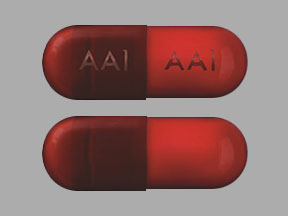
Methyltestosterone Coupons & Savings Card – Discount Prices from $1517.60
Generic for: Methitest
My prescription
Edit
10MG, Methyltestosterone (100 Capsules)
Select pharmacy

CVS
$2238.12
COUPON PRICE
Albertsons
$1517.60
COUPON PRICE
Walgreens
$1829.00
COUPON PRICE
Walmart
$5885.03
COUPON PRICEMethyltestosterone savings card
Show this card to your pharmacist
Albertsons
$1517.60
BIN
ID
PCN
GRP
019876
LH7DA188B0
CHIPPO
LHX
Powered by
Related androgens prescriptions
More prescriptions for breast cancer
Related androgens prescriptions
More prescriptions for breast cancer
Price history for Methitest (brand) & Methyltestosterone (generic)
100 Capsules, 10MG
Average retail price for Methitest
Average retail price for Methyltestosterone
Average SaveHealth price for Methyltestosterone
Our price history data is based on aggregated prescription data collected from participating pharmacies in America. Our prescription data updates daily to reflect the latest price changes. If you notice a missing data point, it means there wasn't sufficient data available to generate a monetary value for that date.
We analyzed Methyltestosterone prices for (10MG, 100 Capsules) over the last 12 months. The average retail price was $8484.53, while the average price using the SaveHealth discount card was $6226.38. That's a savings of approximately 26.61% when using our Methyltestosterone coupon.
Compared to the generic version, Methitest had an average price of $7518.53 over the same time period. With the SaveHealth savings card, Methyltestosterone is 17.19% cheaper on average than Methitest.
*Retail prices are based on pharmacy claims data, and may not be accurate when we don't have enough claims.
Methyltestosterone dosage forms
Dosage Quantity Price from Per unit 10MG 100 Capsules $1517.60 $15.18
| Dosage | Quantity | Price from | Per unit |
|---|---|---|---|
| 10MG | 100 Capsules | $1517.60 | $15.18 |
Methyltestosterone Warnings
This medication comes with important safety information regarding potential risks and necessary precautions. It is crucial to read these warnings carefully and consult your healthcare provider if you have any questions or concerns.
Liver Damage: Methyltestosterone (Methitest) can lead to liver damage, especially with prolonged use or at high doses. This can be life-threatening. Be alert for symptoms such as stomach pain, pale stools, dark urine, or yellowing of the skin or eyes. Notify your prescriber immediately if these symptoms occur, as you may need to discontinue the medication.
Blood Clots: There is an increased risk of blood clots, including heart attacks or strokes, with the use of methyltestosterone (Methitest). Seek urgent medical attention if you experience sudden shortness of breath, leg pain, swelling, warmth, or redness.
Misuse and Addiction: Methyltestosterone (Methitest) is a controlled substance due to the potential for misuse, dependency, and addiction, particularly if taken in higher doses than prescribed or combined with other testosterone products.
Edema (Swelling): This medication may cause fluid retention, leading to swelling in the legs or arms. This is particularly dangerous for individuals with heart, kidney, or liver conditions, as it can result in heart failure. Contact your prescriber promptly if you experience swelling or difficulty breathing. They may consider stopping the medication and prescribing a diuretic.
High Calcium Levels: Patients with breast cancer using methyltestosterone (Methitest) can develop hypercalcemia, which affects bone health. Symptoms like nausea, vomiting, weakness, or confusion should be reported to your oncologist immediately.
Bone Growth in Children: In children, methyltestosterone (Methitest) may cause bones to mature faster without increasing height, potentially resulting in a shorter adult stature. Discuss any concerns about growth with your child’s healthcare provider.
Contraindications: This medication should not be used by:
- Males with breast cancer or prostate cancer.
- Females who are pregnant or may become pregnant.
If any of these conditions apply to you, consult your healthcare provider before using this medication.
Methyltestosterone Side Effects
Common side effects:
- Breast enlargement
- Acne
Less common but important to monitor:
- Deeper voice
- Missed or irregular menstrual periods
- Increased facial and body hair
Serious side effects:
- High calcium levels in the blood
- Elevated red blood cell count
- High cholesterol
- Frequent erections
- Low sperm count
- Changes in sex drive
- Swelling in the legs or arms
- Unexpected bleeding
- Headaches
- Anxiety
- Depression
- Nausea
Methyltestosterone Interactions
Methyltestosterone, a synthetic form of testosterone, can interact with various medications, potentially altering their effects or increasing the risk of side effects. It's important to be aware of these interactions to ensure safe and effective use of the medication.
Anticoagulants (Blood Thinners): Methyltestosterone may enhance the effects of anticoagulants like Warfarin, leading to an increased risk of bleeding. Patients on blood thinners should be closely monitored when starting or stopping methyltestosterone therapy.
Antidiabetic Medications: In individuals with diabetes, methyltestosterone can affect blood sugar levels, potentially lowering them. This may necessitate adjustments in the dosages of insulin or other antidiabetic drugs. Regular monitoring of blood glucose and HbA1C levels is recommended during concurrent use.
Cyclosporine: Co-administration with methyltestosterone may increase cyclosporine levels in the blood, raising the risk of kidney toxicity. Patients using both medications should have their cyclosporine levels and kidney function monitored closely.
Medications Affecting Liver Enzymes: Drugs that induce liver enzymes, such as certain anticonvulsants and antibiotics, can accelerate the metabolism of methyltestosterone, potentially reducing its effectiveness. Conversely, medications that inhibit liver enzymes, including some antifungal agents and HIV protease inhibitors, can slow down its metabolism, leading to increased blood levels and a higher risk of side effects.
Corticosteroids: Using methyltestosterone alongside corticosteroids may enhance fluid retention, increasing the risk of edema. Caution is advised, especially in patients with heart or liver conditions.
Saw Palmetto: This herbal supplement may counteract the effects of methyltestosterone due to its antiandrogenic properties. Patients should consult their healthcare provider before combining these substances.
Given these potential interactions, it's crucial to inform your healthcare provider about all medications, supplements, and herbal products you are currently using before starting methyltestosterone. Regular monitoring and open communication with your healthcare team can help manage and mitigate these interactions effectively.
